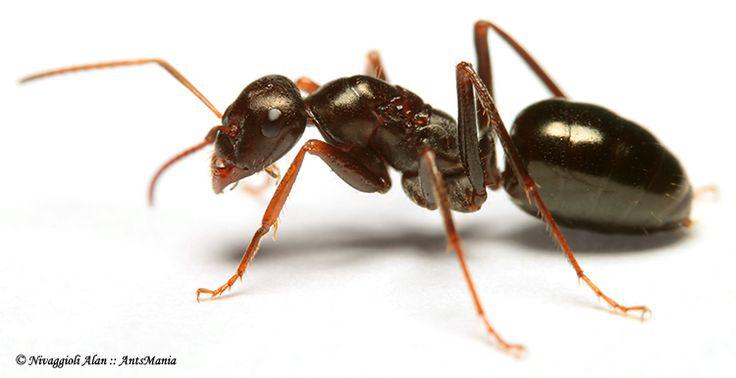What do ants have to do with your house?
After a 3-6 month hibernation period in their anthill, ants return to the surface in good weather in search of food and new nests to build.
Most of the time, the ants who invite themselves to your house are workers in charge of picking up food. These insects are omnivorous and feed on honeydew, a liquid produced by aphids, dog or cat croquettes and almost all of what humans eat.
Ants, for example, can eat meat, fat, bread, and love sweet foods and liquids, so if they find their way to your trash can, they may not turn away from it for a while, unless you give them a strong hint.
In addition to the recommended tips, it is therefore advisable to keep all your food remains in sealed containers. Also remember to protect the croquettes of your pets, by sprinkling the ground with natural repellents or by placing the pots in containers filled with water to create a dam.
Zoom surBoite repas Bundi en inoxDe plus en plus de Français choisissent d’emmener leur repas au travail. Pour un déjeuner plus équilibré, mais aussi plus économique et écologique : toutes les raisons sont bonnes pour faire ce choix. Emmenez au bureau vos salades, sandwichs ou encore vos petits plats avec une boîte repas en inox aussi pratique que compacte. A Slice of Green vous propose cette boîte repas Bundi 650 ml en acier inoxydable idéal pour le contact alimentaire.Also check your indoor plants: if you find ants nearby, they are probably attracted to aphids on the leaves. You will then need to treat your plants with natural products to deter aphids and ants.
Tip # 1: repellent plants
A number of plants that we appreciate for their smell, such as lavender, mint, Basil and tagets, also known as Indian carnations, are real repellents for ants. Generally, these plants have the advantage of disturbing several species of insects, which makes them even more interesting. For example, lavender repels not only ants, but also flies, moths, fleas and mosquitoes.

You can place a few mint, Basil or taget leaves, or a few lavender strands, on the ants' passage areas. But inside the house, this technique is impractical and the leaves, as they dry out, will quickly lose their smell. Instead, you can use a few drops of essential oils, which you can pour directly to the ground or onto porous stones specially designed for diffusion and strategically arranged.
Zoom surPierre ponce à base de roche volcaniqueLa pierre ponce est sans conteste le produit 100 % naturel par définition. En effet, il s’agit d’un petit bout de roche volcanique vitreuse formée à partir de magma. Pour vous permettre de l’accrocher, elle est accommodée d’un lien de coton. Son aspect spongieux lui confère des propriétés exfoliantes et abrasives bien connues pour éliminer efficacement les aspérités des mains et des pieds. Elle s’utilise sur une peau humide, idéalement dans un bain ou au hammam. On peut aussi l’enduire de savon noir pour parfaire le soin.Tip 2: coffee Marc
Popular in the vegetable garden, where it helps stop the growth of slugs, coffee Marc is also useful at home in the event of an invasion of ants.
To increase its effectiveness, moisten the coffee Marc and sprinkle it in a thick layer on the ground. Its smell covers ants' pheromones and disorients them, prompting them to take up residence elsewhere.
Tip # 3: cinnamon
The smell of cinnamon, such as lavender, mint or Basil, is strongly displeased by ants. You can place a few sticks on their way and close to your door and windows. Cinnamon essential oil is just as effective against ants as sticks.
Tip # 4: chalk
Chalk is a physical barrier for ants.
Less well known, this simple, eco-friendly and economical trick is still effective in keeping ants away. All you have to do is sprinkle the contents of a sachet of chemical yeast, which is used to make cakes, on the ant route.
Tip # 6: lemon
Ants fear the citric acid in lemon, which makes it a very effective natural repellent. You can lay lemon slices directly on their usual route, or prepare a mixture of lemon juice and 200 ml of water. Pour this mixture into a vaporizer, shake and spray on the affected areas.
Tip 7: White vinegar
While ants hate citric acid, they do not appreciate acetic acid, which is found in white vinegar. Cheap, non-polluting and safe to health, white vinegar has the only problem with its odour, which, however, attenuates fairly quickly.
Zoom surVinaigre d’alcool bio 6 % 1 lLe vinaigre d’alcool est idéal pour fabriquer des conserves de légumes, mais vous pouvez également l’utiliser pour l’entretien de la maison et détartrer les w.c. ou la robinetterie.From a sedimentary rock, diatom earth is as useful for cleaning a carpet as it is for removing ants. It is a natural and environmentally friendly product, which can be sprinkled on the ground.
Diatom earth exists in food and non-food quality. If you have pets, choose the food version, which is totally safe as it can even be used to rid dogs and cats of their external parasites.








